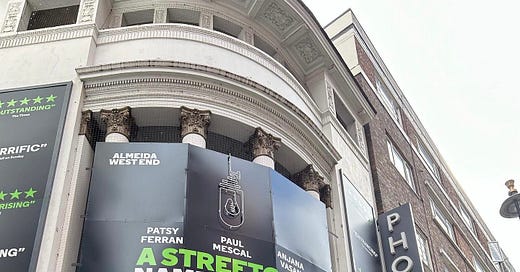Unchecked Ticket Hikes Are Pricing People Out Of Theatregoing
To the West End, currently a topsy turvy combination of premium pricing, day seats and even a ‘game of chance’ involving glow sticks.
Glow sticks. We’ll come on to that in a moment.
This week, The iPaper’s Kasia Delgado issued an indictment of A Streetcar Named Desire’s £305 ticket prices, stating: “Theatre needs to make money. It also needs to remain valued and loved, and if only people with loads of spare cash, or a very relaxed approach to credit card debt, end up being able to see…
Keep reading with a 7-day free trial
Subscribe to Carl’s Newsletter to keep reading this post and get 7 days of free access to the full post archives.



